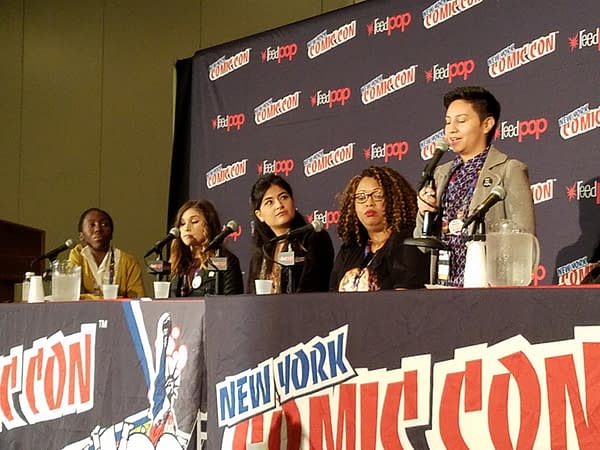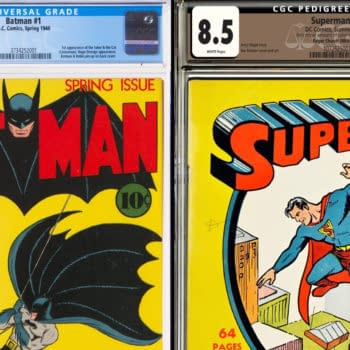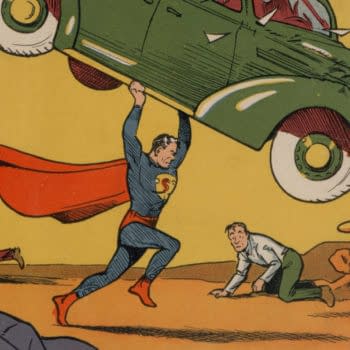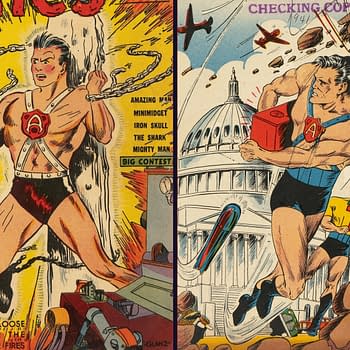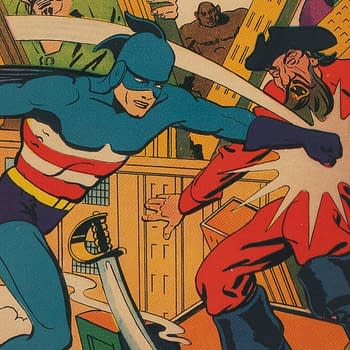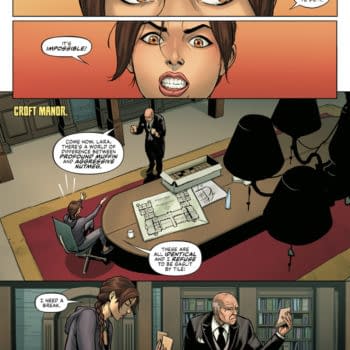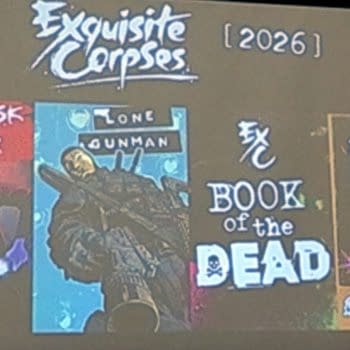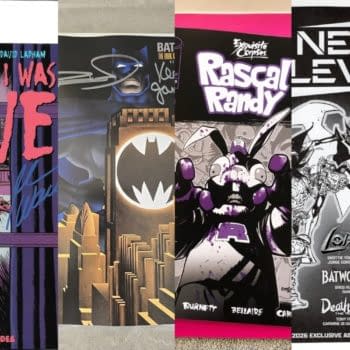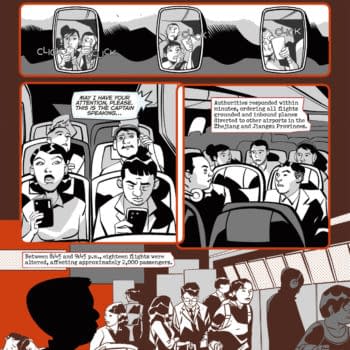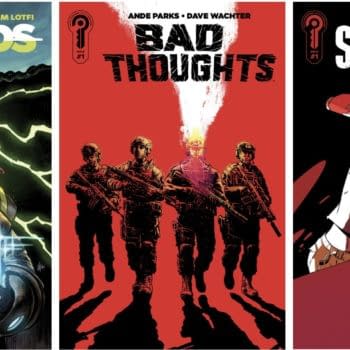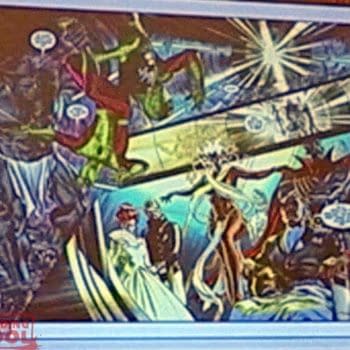Posted in: Comics, NYCC | Tagged: gender, NYCC, publishing, writing
Real-World Advice: The Women and Gender Nonconforming Writers of Color in Digital Media Panel
By John Odum reporting from NYCC
The "Women and Gender Nonconforming Writers of Color in Digital Media" panel (featuring Jennifer Baker of We Need Diverse Books, Bustle editor Cristina Arreola, New York writer Christina Tesoro, Jamie Broadnax of Black Girl Nerds, and Travel blogger Bani Amor) provided as interesting a window into the digital media market as a whole as it did into the particular challenges of its nominal target audience. With a panel consisting of writers, editors — and writer/editors — the tension between the two media tiers was sometime seen making a brief (if collegial) appearance.
While the panel began with a discussion of the dynamics faced by each panelist in pitching inherently non-white, non-male, media projects into a marketplace traditionally dismissive of such perspectives (while granting that the larger media was, indeed, beginning to "catch on"), the structural challenges that define the media across demographic lines quickly made themselves apparent.
Arreola, a former Conde Nast intern, faulted "major publications, I won't name names, who allow people to write for free," for allowing the struggles to make a living in the industry to metastasize. It was a charge repeated, with panelists citing similarly ambiguous targets and scrupulously avoiding "nam(ing) names."
"Monetization is hard, the struggle is real" Broadnax echoed, with Arreola granting that "you're never going to get rich working in digital media."
Despite the sentiment, the consensus of the panel was that there was value in playing the role of the starving writer, as long as it was done with eyes wide open. "It's worth having your name on big sites…its worth having your name out there… but I want people to consider what that means," Baker offered.
The topic returned to a more gendered perspective on the matter of finding work – and in doing so mirrored broader discussions on women in the workforce.
Tesoro commented that "people who pitch more get accepted more," noting the greater tendency of women to stop pitching media projects after an initial rejection. The observation parallels concerns of feminists that women in the greater economy are less aggressive in pursuing work, and far less likely to negotiate for higher pay and raises, a dynamic which contributes to the oft-discussed wage gap between the genders. This tendency, studied in depth by researchers such as Carnegie Melon's Linda Babcock, has spawned several attempts to counter it, from self-help courses to Girl Scout badges.
The panel also explored opportunities for independent work, and in doing so promoted alternative funding options. Fellowships offered by sites such as Buzzflash, Bitch Media, and Lamda were praised, while Broadnax noted that Patreon (a crowd-funding platform for artists) had proven itself to be "incredibly helpful."


